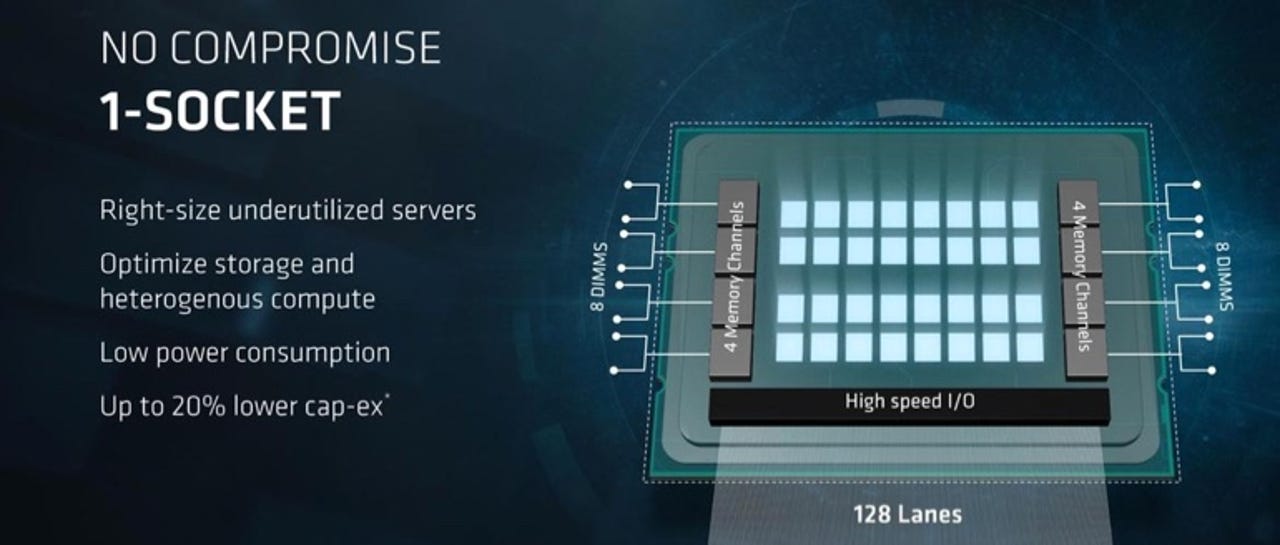Baidu embraces single-socket AMD EPYC chips


AMD EPYC
Baidu, the Chinese internet search provider and leader in artificial intelligence, today announced the immediate availability of AMD EPYC-powered AI, big data, and cloud computing (ABC) services.
Must read: Just how overpriced is Apple's new iMac Pro?
The deciding factor in Baidu choosing EPYC seems to be the performance offered by the platform when configured for single-socket use.
"By offering outstanding performance in single-processor systems, the AMD EPYC platform provides flexibility and high-performance in our datacenter, which allows Baidu to deliver more efficient services to our customers," said Liu Chao, senior director, Baidu System Technologies Department. "Baidu's mission is to make a complex world simpler through technology, and we are constantly looking to discover and apply the latest cutting-edge technologies, innovations, and solutions to business. AMD EPYC processors provide Baidu with a new level of energy efficient and powerful computing capability."
AMD offers what it calls a "no compromise" single-socket platform, with no arbitrary limitations set on i/O, or memory bandwith and performance. This allows customers to make a no compromise choice for underutilized servers, and benefit from lower power consumption and lower capital expenditure.
Best gifts: Top iPhone X/iPhone 8 accessories from $6 to $200
"Baidu is a long-recognized pioneer in datacenter innovations, and with their adoption of AMD EPYC they continue down that path by leveraging our single-socket innovations to power their ABC strategy," said Scott Aylor, corporate vice president, and general manager, AMD Enterprise Solutions. "It is a thrilling experience to work side-by- side with Baidu to explore the capabilities of AMD EPYC and maximize its application across their customers' workloads."
Each EPYC processor package can support up to 2TB of DDR4 RAM over eight channels, and has 128 PCIe lanes, which means that the platform has more than two-and-a-half times the I/O density of a processor such as Intel's Xeon SP Series.
This win comes a little over a week after Microsoft became the first global cloud provider to use EPYC processors in its datacenters. And back in November, the new EPYC-powered Hewlett Packard Enterprise (HPE) ProLiant DL385 Gen10 server set new world records for both SPECrate 2017_fp_base and SPECfp_rate2006 benchmarks.
AMD's EPYC: Everything you need to know
See also:
- Everything you need to know about charging your iPhone X or iPhone 8
- Can you blow up your iPhone X/8 by placing it on a wireless charger pad while it's charging with a cable?
- The Apple Watch 3 is awesome
- USB-C is a total dumpster fire because we want it to do too much too quickly
- The iPhone X/8's best feature is one that most people will never get to use